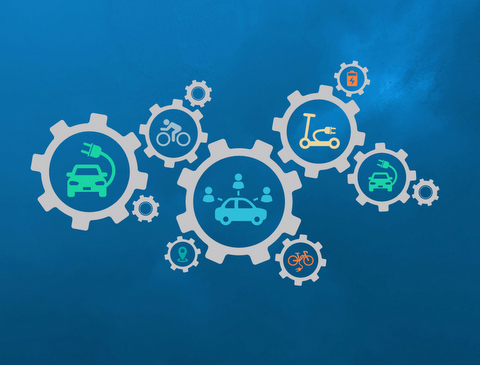Finds Consumers Ready to Carry Pandemic Patterns On
We’re all more than a little tired of 2020 and its “year like no other,” but what does that bode for next. Annually, Ford’s “futuring manager” Sheryl Connelly, surveys the world and sorts through the polls to suggest what to expect in the year to come.

Her ninth annual Looking Further with Ford Trends Report found folks exhausted by this year, but adapting. The potential impact on the automotive world is profound and cuts across several concerns for those of us focused on the environmental side of the car business.
“…while no one can predict the future, that doesn’t mean we can’t prepare for it,” said Connelly. It looks like Ford and others will have to continue to adjust.
The surveys shows some mixed results. Even though folks are more home-based than any time in the recent past, car buying (and bike buying) are hitting new peaks. The surveys pointed to respondents desire for control as the factor motivating car buying, though the same survey found a rising acceptance of autonomous cars (with 67 percent of respondents saying they are “hopeful about the future of autonomous vehicles.”)
The World Response
The survey took the pulse of a cross-section of respondents in 14 countries, including the U.S., Canada, China, India, Brazil and four European countries. Globally, 71 percent of adults agreed with the statement, “I am actively changing my behavior to help in the fight against climate change.” Additionally, a majority of respondents said they purchased from brands that protect the environment, but the positive percentage varied from 54 percent for baby boomers to 70 percent for Millennials.

While the pledge to move to more environmentally sustainable products is laudable, past surveys have noted a gap between pledged and real activities. In the survey 60 percent of those who have reconsidered the numbers of vehicles in their household said “I need fewer vehicles.” But another of the questions revealed a concerning trend—across the board the intent to use public transit or other shared ride programs dropped and promises to continue as 52 percent said they are less likely to take the subway/light rail or bus and 47 percent said they would be less likely to use a ride hailing or taxi service. Fewer cars is better, but less shared travel means congestion will likely continue to be a major issue.
Life in the pandemic has changed some people’s attitudes toward their cars. It appears that cars have become sanctuaries of a sort, with 26 percent of respondents using their cars to relax, 20 percent using them to get privacy and 17 percent using their cars as a place to work.
Those cars may be purchased in new ways, too, as consumers indicated a strong trend toward keeping the socially distanced purchasing styles of the pandemic in place into next year.

Finally, survey respondents sent a strong message to companies that public stands on social issues would be expected, although U.S. respondents lagged the worldwide response significantly. In the U.S. only 56 percent of respondents agreed with the statement: “I expect brands to take a stand on social issues” compared with 89 percent in Brazil and 87 percent in China. Fully two-thirds of survey respondents felt companies “have a responsibility to address social injustice.”
How auto companies respond to these trends remains to be seen. What 2021 holds after the surprises we were hit with in 2020 will also be a factor, but it appears clear that many of the changes we experienced this year may carry on for some time to come. We’d welcome your response to some of these questions in the comments section. What do you think 2021 will bring?
Story by Michael Coates; graphics from Ford.

good article and best effort easy to search thx for sharing such a good ideas